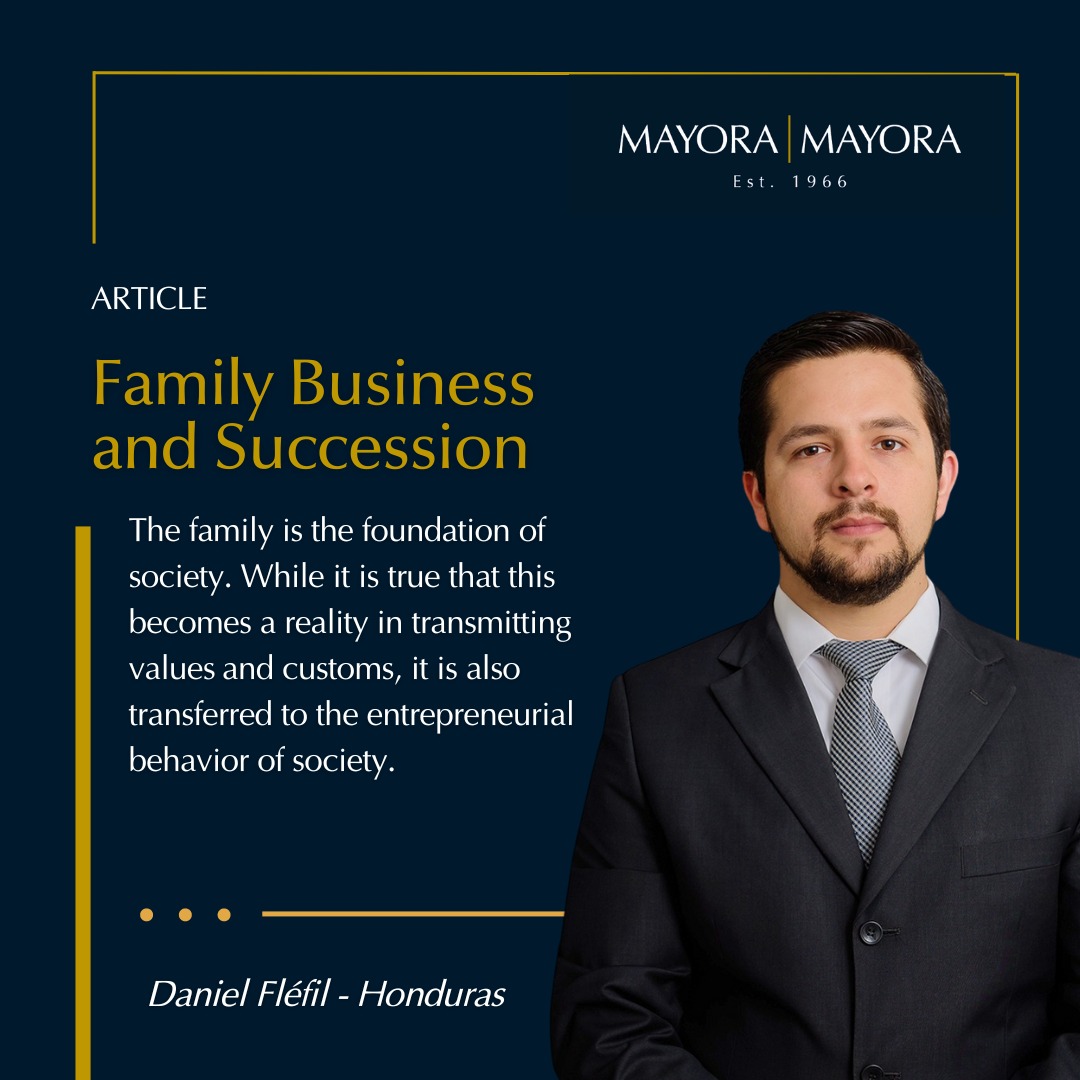The family is the foundation of society.[1] While it is true that this becomes a reality in transmitting values and customs, it is also transferred to the entrepreneurial behavior of society. Since approximately 90% of for-profit entities are controlled directly or indirectly by families,[2] this fact alone must cause a collective social impulse to achieve their proper functioning and perpetuity.
External factors from the business and social sphere, such as changing markets, technology and innovation, pose a challenge for all companies, but an even greater one for family businesses, where internal factors linked to family relationships may cause obstacles on decision making scenarios, turning the natural conflicts of a company into personal “ego fights”, combined with an unavoidable trust and frankness that are heightened in family meetings, partner meetings and board of directors meetings.
The organic dilemmas between meeting all the needs of the family at the expense of the business, or growing the business exponentially while neglecting family needs, are ordinary in a family business and usually condemn it to generational destruction, not only affecting third parties related to the company and the economy but, in most cases, leading to an emotional separation within the family.
The balance of these factors is crucial and makes succession planning[3] and family business structure[4] essential, generating an integral development both for the business and the family.
The sustained continuity of the family business, its planning and reorganization, bring only positive consequences that motivate future generations to sustain the business in balance with family. Family vision and values are institutionalized; proper communication and dispute resolution processes are created and practiced at various stages of the organization, between partners, managers, and the company itself; studied and controlled nepotism procedures are implemented; fair processes for decision-making around the business, without ignoring the family interests are made a normal practice. In general, trust is produced among stakeholders, applying the rules in a coherent manner for all.
Family values, shared vision, and strategic thinking, combined with a drive for business growth, achieve the generational transition, with logical economic benefit for the company, ensuring that family relationships transcend with respect and, consequently, with patrimonial security.
When is the best time to organize or reorganize my family business?
The answer is simple: There is no better time than NOW, no matter if you are starting a business or in the second, third or fourth generation that has continued it.
How can it be achieved?
All it takes is the encouragement of one member to lead the family in search of competent legal and corporate advice to guide them, since it is essential that the processes of the corporate structure are executable and enforceable according to the legislation to which they are subject, as this will ensure strict compliance and implementation.
At this stage, it is important to emphasize to the family that it is easier to “make the rules of the game clear” beforehand, precisely because difficult decisions, such as managing the human talent of future generations, are more viable when they are theoretical.[5]
Once the decision is made, the corporate and family structure is evaluated by carrying out a preliminary diligence to determine if it has all the characteristics to last generationally.
Subsequently, a corporate structure is designed to guarantee adequate governance of operating companies, including a family board, where substantial decisions (like implementing the family values in the business) are made, and a board of directors, where strategic operative decisions are made.
To achieve this is the goal of the family protocols and shareholder agreements, atypical contracts that, in accordance with current legislation, establish procedures for the resolution of disputes, professional growth plans for family members in the structure, requirements to qualify for sale of shares, decree and payment of dividends, succession plans, among others.
In conclusion, succession planning and family business structuring will deliver the legitimate possibility to achieve the transcendence of values, maintain the affection and heritage of the family, as it is and will remain the foundation of society.
Daniel Fléfil Zepeda
[1] See Pope Paul VI, Gaudium Et Spes (Pastoral Constitution on the Church in the Modern World), Catholic Church, 1965.
[2] See Carlock, Randel S. y Ward, John L. Strategic Planning for the Family Business: Parallel Planning to Unify the Family and Business. Palgrave, p. 8; Brenes, Esteban y Madrigal, Krissia, Anticipando el Conflicto en Los Negocios Familiares, Revista INCAE, octubre 2003, volumen XIII, número 3, pp. 22-27.
[3] The succession plan for assets, shareholdings, and control within the governance of a family business.
[4] Corporate structure that controls the family business, including assets, commercial companies of all types of economic sectors, financial products, among others.
[5] Sonny Iqbal, Jennifer Pendergast, and German Herrera, Managing the Trickiest Parts of a Family Business, Harvard Business Review, 2020.





